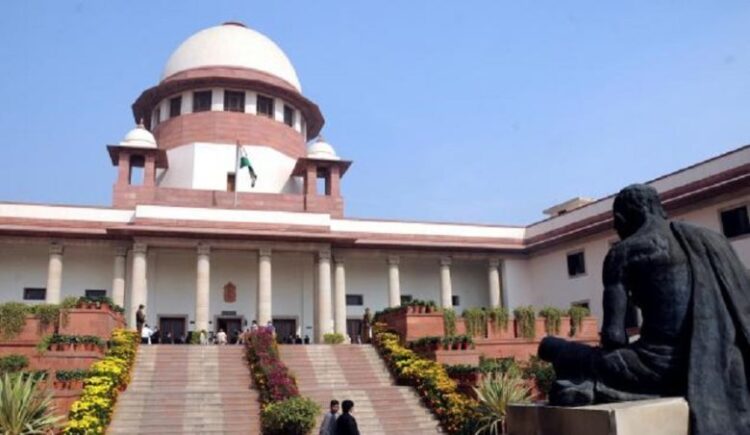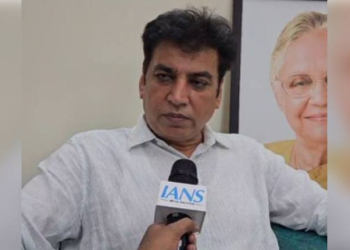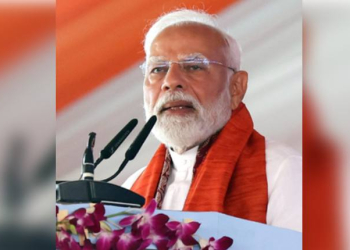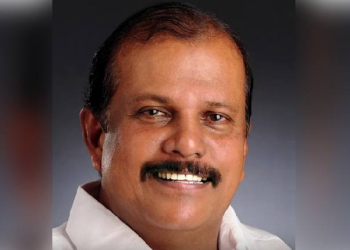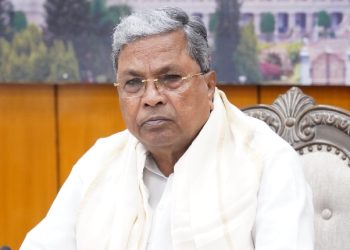New Delhi: The Centre told the Supreme Court that the right to freedom of religion does not include a fundamental right to convert people to a particular religion.
The Centre’s response came on a plea by advocate Ashwini Upadhyay against fraudulent religious conversion and religious conversion by intimidation, threatening, deceivingly luring through gifts and monetary benefits, as it offends Articles 14, 21, and 25.
The plea claimed that if such conversions were not checked, Hindus would soon become a minority in India.
In an affidavit, the Union Ministry of Home Affairs said: “It is submitted that the right to freedom of religion does not include a fundamental right to convert other people to a particular religion. The said right certainly does not include the right to convert an individual through fraud, deception, coercion, allurement or other such means”.
The Central government said the petitioner has highlighted a large number of instances carried out in an organised, systematic and sophisticated manner of conversion of vulnerable citizens in the country through fraud, deception, coercion, allurement or other such means.
It further added that the meaning and purport of the word ‘propagate’ falling under Article 25 of the Constitution was discussed and debated in great detail in the constituent assembly and the inclusion of the said word was passed by the constituent assembly only after the clarification that the fundamental right under Article 25 would not include the right to convert.
The Centre said the apex court has held that the word ‘propagate’ does not envisage the right to convert a person rather is in the nature of the positive right to spread once religion by exposition of its tenets.
“This Court further held that fraudulent or induced conversion impinges upon the right to freedom of conscience of an individual apart from hampering public order and, therefore, the State was well within its power to regulate/restrict the same,” it added.
The Centre said it is cognizant of the gravity and the seriousness of the issue raised in the present writ petition and enactments are necessary for protecting cherished rights of vulnerable sections of the society including women and economically and socially backward classes.
“It is submitted that that public order is a state subject and in pursuance to the same various states over the course of the years passed enactments seeking to curb the practices highlighted in the present petition.”
The Centre said nine state governments have already have legislations in place on the present subject: Odisha, Madhya Pradesh, Gujarat, Chhattisgarh, Jharkhand, Uttarakhand, Uttar Pradesh, Karnataka, and Haryana.
It said that the reliefs sought in the present petition would be taken up in all seriousness by it and appropriate steps shall be taken as it is cognizant of the menace.
On November 14, the Supreme Court said forced religious conversion is a “very serious issue”, and may affect the security of the nation and asked the Centre to make its stand clear on what steps can be taken to curb forced conversions.
The top court said there is freedom of religion, but no freedom on forced conversion.
Upadhyay’s plea said that “freedom of religion enshrined in Article 25 is not granted exclusively in respect of one faith, but includes all religions equally, and an individual may properly enjoy it if he practices his right in a manner commensurate with the freedom of persons practicing the other religions”.
What is liberty for one, in equal measure, is freedom for the other, and therefore, there can be no such thing as a fundamental right to turn another man into one’s own religion.”
The petitioner has made the Union Ministries of Home Affairs, Law and Justice, CBI, NIA and state governments as respondents in the matter.
(IANS)



